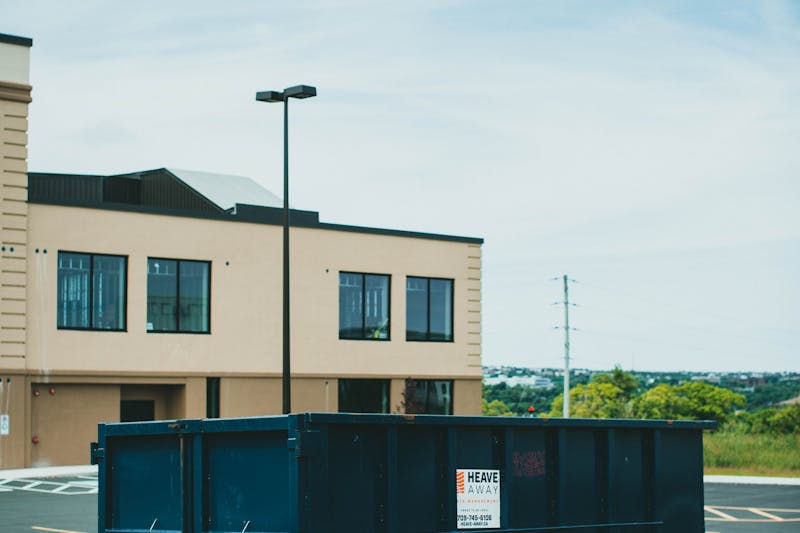A Thorough Guide to Safety Precautions with Skip Bin Hire Solutions
- Alyssa Moylan
- Jan 20, 2025
- 4 min read

Has it ever crossed your mind how to handle home or commercial waste more efficiently? Can you relate to the hassle and confusion associated with debris disposal, especially during large renovation or construction projects? Are you considering hiring a skip bin but unsure how to use it safely? If any of these questions resonate with you, then continue reading! This blog post we’ll provide a comprehensive guide on how to correctly, and most importantly, safely use skip bin hire services, ensuring your home or construction site stays clean and hazard-free.
Understanding the need for effective waste management and its importance is essential, particularly in extensive renovation or construction works. It’s not just about making your space clutter-free, but also ensuring a safe and sustainable environment. That's where skip bins come into play. However, a little-known fact about these apparently straightforward contraptions is the necessity to handle them with care to avoid accidents and injuries. With this guide, we aim to equip you with working knowledge of skip bin safety measures.
Delving into the topic, we will uncover the dos and don'ts of skip bin usage, the proper techniques to fill a skip bin, guidelines to follow while dealing with hazardous waste, and the essential safety equipment required in the process.
Why Safety Is Paramount When Using Skip Bins
Simply put, safety is everything when dealing with skip bins. An oversight in managing these giant containers can potentially lead to harmful situations. Moreover, mismanaged waste or poorly filled skip bins can create hazards not just for you but also for the bin collection personnel.
Besides physical injuries often resulting from overbearing weight, unsorted hazardous waste could also cause detrimental health impacts. By understanding, implementing, and executing the proper safety measures, we can diminish, if not wholly eradicate, these risks involved.
Learning safety measures isn't just about preventing accidents but also about fostering a sense of responsibility towards environmentally friendly and sustainable waste management. By safely disposing of waste, you contribute to minimizing environmental pollution and promoting resource recovery.
What You Should (and Should Not) Dispose of in Skip Bins
Understanding which types of waste are safe to dispose of in skip bins is crucial. Common waste types suitable for skip bins include general household waste, bricks, concrete, metal, and green waste such as garden trimmings.
However, several materials shouldn't be disposed of into a skip bin due to their destructive and hazardous nature. Asbestos, chemical waste, car batteries, tyres, and gas bottles fall into this category. Incorrect disposal of hazardous waste can lead to injuries and environmental damage.
Having a clear understanding of what can and can't be thrown into your skip bin is the first major step towards ensuring safety in waste management. When in doubt, always consult with your skip bin hire company.
When to Use Safety Equipment
Personal safety equipment is paramount when dealing with waste management. This equipment becomes particularly necessary when you are dealing with pieces of shattered glass, sharp metal, or hazardous waste materials.
Safety gloves, hard hats, high-visibility vests, and safety boots can protect you from the potential dangers of handling waste materials. During the collection and disposal phase, all involved personnel should maintain a high standard of personal protection.
Never undermine the importance of safety equipment while handling skip bins on your premises. Inform and educate everyone involved in the process about the significance of these safety measures.

How to Properly Fill Skip Bins
Properly filling your skip bin is not just about maximizing its utility but also about ensuring safety during the collection, transit, and disposal stages.
It’s important to place heavier items at the bottom and lighter items on top. Sharp or protruding items should be carefully positioned so they don't stick out of the bin, posing a risk to people and infrastructure during transit. It’s also necessary not to overload the skip bin past its marked fill line to avoid spilling during transit.
Pros and Cons of Skip Bin Hire
Hiring a skip bin has several pros such as convenient waste management, time-saving, and cost-effectiveness. Moreover, it offers an environmentally responsible way to handle waste disposal during renovations or construction projects.
However, potential cons include restricted waste disposal rules, requiring ample space for placement, and the necessity of a permit for public land use.
The Role of Skip Bin Hire Company
A reputable skip bin hire company will not only provide you with the appropriate bin for your needs but will also guide you through the safety measures. They should provide clear instruction on the proper filling, use, and disposal methods to ensure safety and efficiency.
Above all, it's their responsibility to ensure that waste collected is disposed of or recycled in an environmentally friendly and responsible manner. Your skip bin hire company plays a significant role in promoting safety and sustainability.
In conclusion, incorporating the right safety measures when using a skip bin hire service is crucial for preventing injuries, promoting sustainable waste management, and ensuring a seamless flow of work. While skip bins offer a practical solution for waste management, the successful and safe execution of this solution lies in following the safety guidelines rigidly. Combining the best practices along with a trusted skip bin hire service will ultimately lead towards a cleaner, safer, and eco-friendlier environment.
.png)







Comments